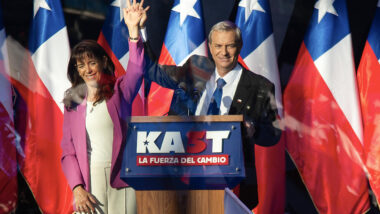
Ouça este conteúdo
The world’s richest man, Elon Musk, is a controversial figure in the USA and in Brazil. Born in South Africa, Musk moved to Canada at eighteen years old, but eventually made his way to the USA. If you want to start a business that might become a “unicorn,” there is no other place that is better. Musk proved this, over and over and over, creating several companies that have revolutionized numerous fields, and making him hundreds of billions of dollars. The USA’s preeminence on the world stage is largely because the Musks of the world find its ground so fertile.
Musk made his first fortune after dropping out of Stanford (after just two days!) and founding Zip2, an online guide to cities, which was acquired for over $300 million in 1999. He took that money and built the payments company that would become PayPal. He sold that to eBay for $1.5 billion. One hundred million dollars from that deal turned into SpaceX. Pioneering reusable rockets, SpaceX has dramatically reduced the cost of putting stuff (e.g., satellites and people) in space. Just a decade ago, NASA spent about $30,000 per pound of payload on the Space Shuttle; SpaceX’s Falcon 9 costs about thirty times less. This week, SpaceX sent astronauts further into space than at any point since a 1972 Apollo mission and did the first non-governmental spacewalk. In the 1960s, President John Kennedy inspired us to go to the moon; today, Musk, a private citizen, is the one setting humanity’s course to Mars. Although private, SpaceX is estimated to be worth about a quarter of a trillion dollars.
Musk also helped found Tesla, the most valuable car company in the world. It is worth about as much as all the other Japanese and American car companies combined. If you believe electronification and automation of transportation are world-saving technologies, it would hard to pick a more important figure over the past few decades than Musk. Not satisfied, he also helped found an important solar energy company, a boring company to build high-speed hyperloops, a non-profit artificial intelligence company, OpenAI, and a neurotechnology company that has successfully installed brain-computer interfaces in disabled patients that allow them to manipulate objects with their minds. All told, these companies are worth more than $1 trillion. This is about half the annual economic output of all 220 million people in Brazil.
The social value of these companies is, however, much greater than this. The economist William Nordhaus estimates that entrepreneurs, like Musk, capture about one percent of the value for society that they create. Musk is worth about $250 billion, meaning he has made us all better off to the tune of roughly $25 trillion.
But although Musk is praised in some quarters, he is reviled in others, both in the USA and in Brazil.
In the USA, he and his companies have faced dozens and dozens of lawsuits. Vast operations inevitably run afoul of the countless rules of the modern regulatory state. The federal government has come after Musk several times, alleging that hiring practices violated labor laws (SpaceX did not hire illegal aliens), that his social media posts violated securities fraud laws, among others. There are also countless private suits, alleging he created a hostile work environment for LGBT employees, that his launch pad in Texas destroys the environment, that he gets paid too much from the companies he runs, and so on. Americans are sharply divided about whether he is a good guy or a bad guy.
Musk makes an easy target. He doesn’t play by the rules. Most CEOs are demure and guarded. They script their words. They would make polite dinner guests. They are careful not to offend. They trim their sails. Musk is brash and thrives on pushing buttons and boundaries. No one who didn’t could have done what he has done.
Americans are sharply divided about whether he is a good guy or a bad guy
One problem is that it is likely Musk does not listen to his lawyers. This is a good thing. I co-authored a study that looked at the performance of companies run by CEOs who went to law school. The punchline is that lawyer-CEOs were involved in much less litigation, but that overall, they performed much worse. Lawyers aren’t risk takers, and risk is what generates value. This isn’t to say that every CEO should be like Musk. We need steady hands at most companies. But the world also needs people who write their own playbook.
Musk became a polarizing figure in the USA, and persona non grata in Brasilia, through his ownership of, and conduct on, X (formerly known as Twitter). He bought the social media platform to save it from what he thought was an attack on free speech. Pre-Musk, Twitter had a vast apparatus designed to rid the platform of “hate speech” and other toxic content. But as revealed over the past few years, Twitter, Facebook, and other social-media companies collaborated with the government to suppress opinions of people it did not like. For instance, opinions about Covid, many of which turned out to be true, were censored because they ran afoul of official government policy.
Regulating speech is not easy work and if the government tries to do it, it may distort the truth rather than saving it. Musk put an end to most content regulation because of this fear. To some, that makes him the savior of free speech. To others, his failure to kick crazies off the platform, of which there are many, and his posting of memes and content that press buttons and are uncouth, make him the harbinger of a chaotic and dystopian free-for-all on the Internet.
Preferring a more orderly Internet, a Brazilian Supreme Court justice banned X after it refused to comply with a government demand to remove certain Brazilians from the platform. To punish Musk’s insolence and lawlessness, the government has also gone after Musk’s other companies, even though they are legally separate entities. Brazil, it seems, is currently willing to put the question of what to believe and what can be said in the hands of the government.
For Americans, the law is on Musk’s side. The Bill of Rights makes the freedom of speech immune from even democratic oversight. In one of the greatest, if not the greatest, moments in the history of the Supreme Court, Justice Robert Jackson declared that “fundamental rights may not be submitted to vote; they depend on the outcome of no elections.” The right in question was the freedom to ignore government dictates with regard to one’s speech and beliefs. Jackson wrote: “If there is any fixed star in our constitutional constellation, it is that no official . . . can prescribe what shall be orthodox in politics . . . or other matters of opinion.”
This is not the first time humanity has found itself in this position. The years after Gutenberg invented the printing press were full of fear, uncertainty, violence, but also hope and progress. We are in such a moment. A new technology is making it possible for people all over the world to communicate directly without the approval of government bureaucrats or easy-to-regulate media companies. We are still learning how to best use this technology to better humanity. There will be overreaches and mistakes. But hopefully in our desire to find the best path forward, we do not kill the risk-taking spirit that drives the world forward.
Conteúdo editado por: Jônatas Dias Lima




